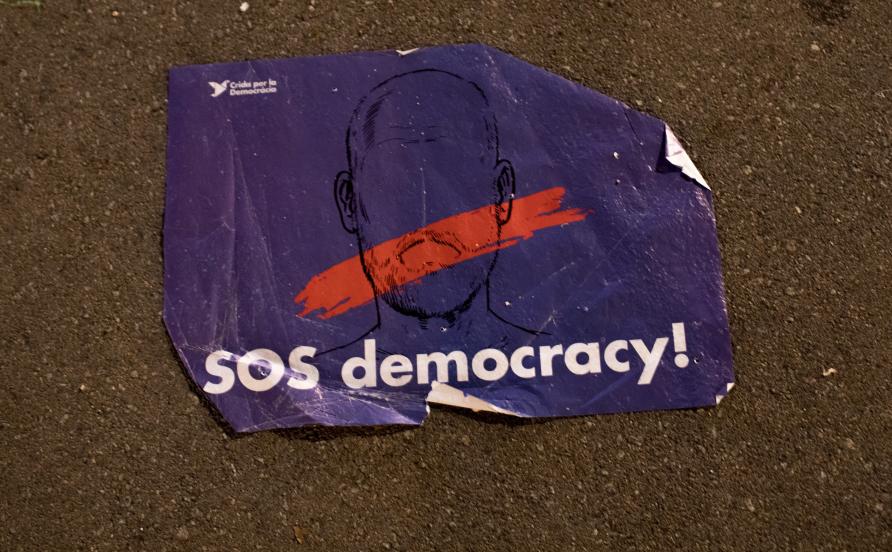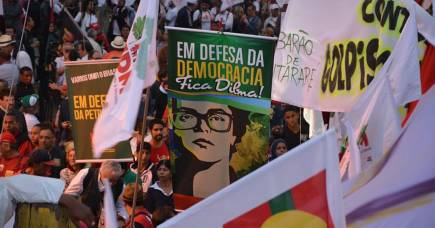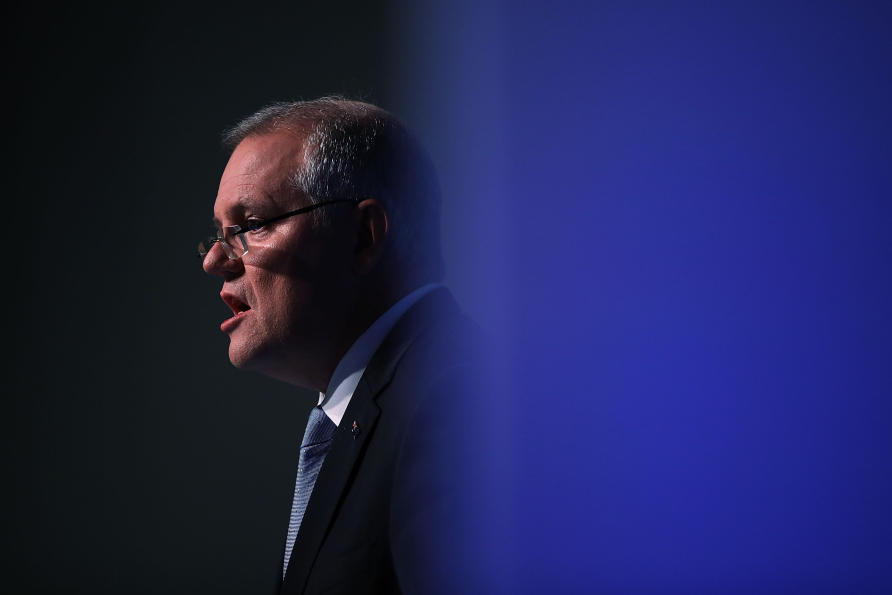Searching for Democracy 2.0 without losing Democracy 1.0
Reimagining and safeguarding democracy, while charting a course between alarmism and complacency, requires new ways of thinking
What links countries as disparate as the USA, Brazil, India, Poland, Venezuela, and Japan?
They are all democracies considered to be affected by serious deterioration or ‘democratic decay’ of differing degrees. Some states, like Hungary, have changed from being Europe’s democratic darling in the 1990s to no longer being considered a real democracy at all.

Venezuela presents the extreme case. Latin America’s economic, democratic and stability star of the 1980s – with a GDP equal to Ireland and Israel – has degenerated into a full-blown dictatorship today, mired in a triple-pronged political, economic, and humanitarian crisis so acute that 2.3 million people have left the country since 2014.
Over the past five years I’ve had a front-row seat to this disturbing trend. Researching in Brazil in June and July 2014 as nationwide protests broke out against a democracy failing to deliver prosperity, security and good governance.
Watching the second Clinton/Trump debate in a Chicago suburb with American friends in October 2016. Working with judges in Turkey in late 2016 and early 2017 as the country descended into dictatorship. Taking the temperature in Gdańsk as a visiting professor in July 2017 on the day the Polish government unveiled laws to gut the Supreme Court.

Turmoil in Trump land
The global ‘democratic recession’ has become the focus of endless commentary. But pat punditry crowds out many astute takes. ‘The peasants have revolted and now hate liberal democracy’ is the unhelpful – and all too common – message.
You need to know the research area well to navigate the noise and find the truth. For example, researchers here in Australia are leading the way in showing that the populist turn is based on cultural as well as economic drivers – it’s more than the economy, stupid!
Complacency is also common. Yet, even countries in the global democracy ‘Top 20’ – including Australia and Canada – are not entirely immune.
Although its democratic challenges are not comparable to say, the USA or Poland, Australia’s revolving door leadership is just one issue seriously undermining trust in the political system.
Factor in worrying laws curtailing free speech and aimed at addressing foreign influence in the political system, and the government’s failure to seize the moment on a real voice for Indigenous communities, and it’s clear that Australia also needs to renew its democracy and reaffirm its democratic system and principles.
In a way, many of democracy’s troubles worldwide relate to the search for a ‘Democracy 2.0’.

In so many states, the prevailing democratic system has simply not delivered what was expected, or is failing to provide what it once delivered more effectively – a real voice, responsive government, less corruption, economic opportunity, a chance to genuinely affect policy.
Voters have, often in good faith, sought disruption and change, but didn’t appear to factor in the real threat of throwing the baby out with the bathwater – those core elements that all democracies, even poor performers, tend to do better than dictatorships; the safeguarding of human rights and the protection of minorities.
“Even if he is crazy, someone needs to bring change” is one Brazilian voter’s take on the rise and rise of the country’s pro-dictatorship presidential hopeful Jair Bolsonaro, now leading Sunday’s presidential elections.

Brazil elections: Is democracy itself on the ballot?
Sound familiar?
Much of democracy defenders’ energy right now is focused on anatomising how democracy is being rolled back worldwide — and rightly so. However, this means democracy defenders can easily be painted as defenders of the status quo ante, as ardent apologists for ‘Democracy 1.0’ who deny the need for reform.
In reality, the task before us is two tasks in parallel – re-thinking democracy while safeguarding what is valuable.
A start has been made with, for instance, efforts to re-think citizen engagement with politics through new bodies – like the Citizens’ Assembly in Ireland - but we cannot renew how we think about and ‘do’ democracy if we do not protect the essentials of our democratic systems and freedoms.
Meeting the challenge of simultaneously reimagining and safeguarding democracy, as well as charting a course between alarmism and complacency, requires new ways of pooling knowledge and having a truly global conversation.
This is frustrated by so many boundaries – especially between different academic fields, and between academia and policy. Although academics and policymakers are building bridges to work together, too often lawyers, political scientists, activists, politicians and others speak only to their own ‘tribe’.

We need tools and platforms that help to maximise our ‘hive knowledge’ in an open-sourced and collaborative way, that go beyond isolated meetings and personal contacts. Tools that can really bring democracy defenders together.
For me, this is no mere academic question. Democratic decay is blighting my friends’ and colleagues’ lives in states across the world. But it’s a trend that none of us can afford to ignore – no matter where we live.
Dr Tom Gerald Daly is the creator of the Democratic Decay Resource (DEM-DEC), an online tool designed to assist researchers and policymakers concerned with the deterioration of democracy worldwide - and to help them work together. DEM-DEC will be launched at the University of Melbourne on 22 October. Register for the launch here.
Banner image: Getty Images